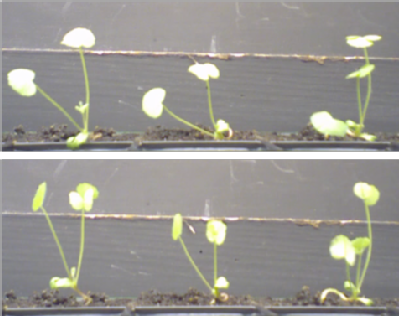- Increases in plant yield could be naturally made thanks to research at the School of Life Sciences, University of Warwick
- A grant of £492,343 from the BBSRC will help researchers look at the natural process of nodulation and its relationship with the plant body clock in order to increase yield and reduce the need for expensive fertiliser
- Nodulation is the process of legumes (peas, beans etc) fixing nitrogen from the atmosphere
An innovative way to increase plant yield naturally, reducing the need for expensive fertilisers is being explored by researchers at the School of Life Sciences at the University of Warwick, thanks to a £492,343 grant from the BBSRC.

The growth and development of plants, animals and microbes are under the control of a 24-hour biological timing mechanism known as the circadian clock. The circadian clock also enables plants to recognise changes in seasons, by measuring the length of the day. This enables them to turn on flowering at the most appropriate time of the year.
However, whenever crops were transplanted to other parts of the world, these seasonal responses became problematic because they were mis-matched to the new environment. For many crops, the process of domestication over thousands of years has resulted in the loss of these responses, in many cases through disruption of the circadian clock.
Legumes, such as peas, lentils and beans are important in our diet, but they also have a large positive impact on soil health, as they fix atmospheric nitrogen by working in symbiosis with nitrogen-fixing bacteria called rhizobia; this process is called nodulation. Nodulation is of great benefit to farmers as it decreases the need for expensive fertilisers, as the nitrogen is naturally produced.
In the project, An N-fix in time: circadian control of nodulation, the Principal Investigator, Miriam Gifford, from the School of Life Sciences at the University of Warwick, will work with Isabelle Carré, also from Warwick's School of Life Sciences to research the link between the circadian clock and nodulation.
They will find out how disruption of the clock affects interaction with symbionts, so they can breed back the value of the clock for controlling nodulation and increase plant yield in a sustainable way. The project is viable thanks to a three-year research grant of £492,343 from BBSRC, which will enable postdoctoral and technical researchers to complete novel experiments.
Dr Miriam Gifford, from the School of Life Sciences at the University of Warwick comments:
"Legumes are popular everyday vegetables heavily produced in the UK, however due to thousands of years of domestication they have lost sense of their 'body clock', in other words, circadian control.
"Our research suggests that this has also impacted on their ability to form symbioses with nitrogen-fixing bacteria, resulting in an increased need for nitrogen fertilisers. We hope that by building on our previous research identifying the link between circadian control and nodulation we can work out how to increase the yield of legumes naturally, without the need for expensive fertilisers."
Dr Isabelle Carré, from the School of Life Sciences at the University of Warwick adds:
"If we were able to optimise nitrogen fixation from the atmosphere, this could have a massive impact on the farming economy in the UK.
"Farmers would be able to increase their yield through natural means and would spend less on fertilisers. This would reduce the significant carbon footprint of nitrogen fertilisers and limit their damaging impact on the environment, while increasing profit margins for farmers and boosting the economy. We are thoroughly looking forward to starting the research, and we thank the BBSRC for funding to enable us to do this."






